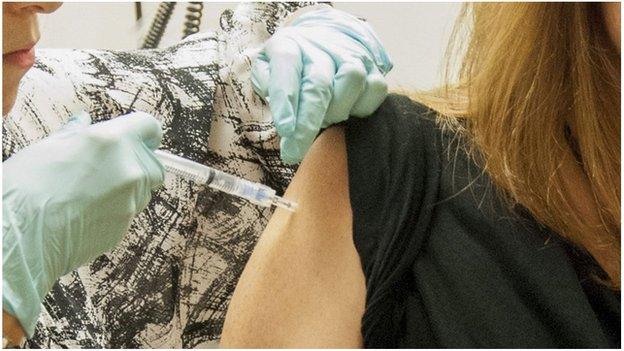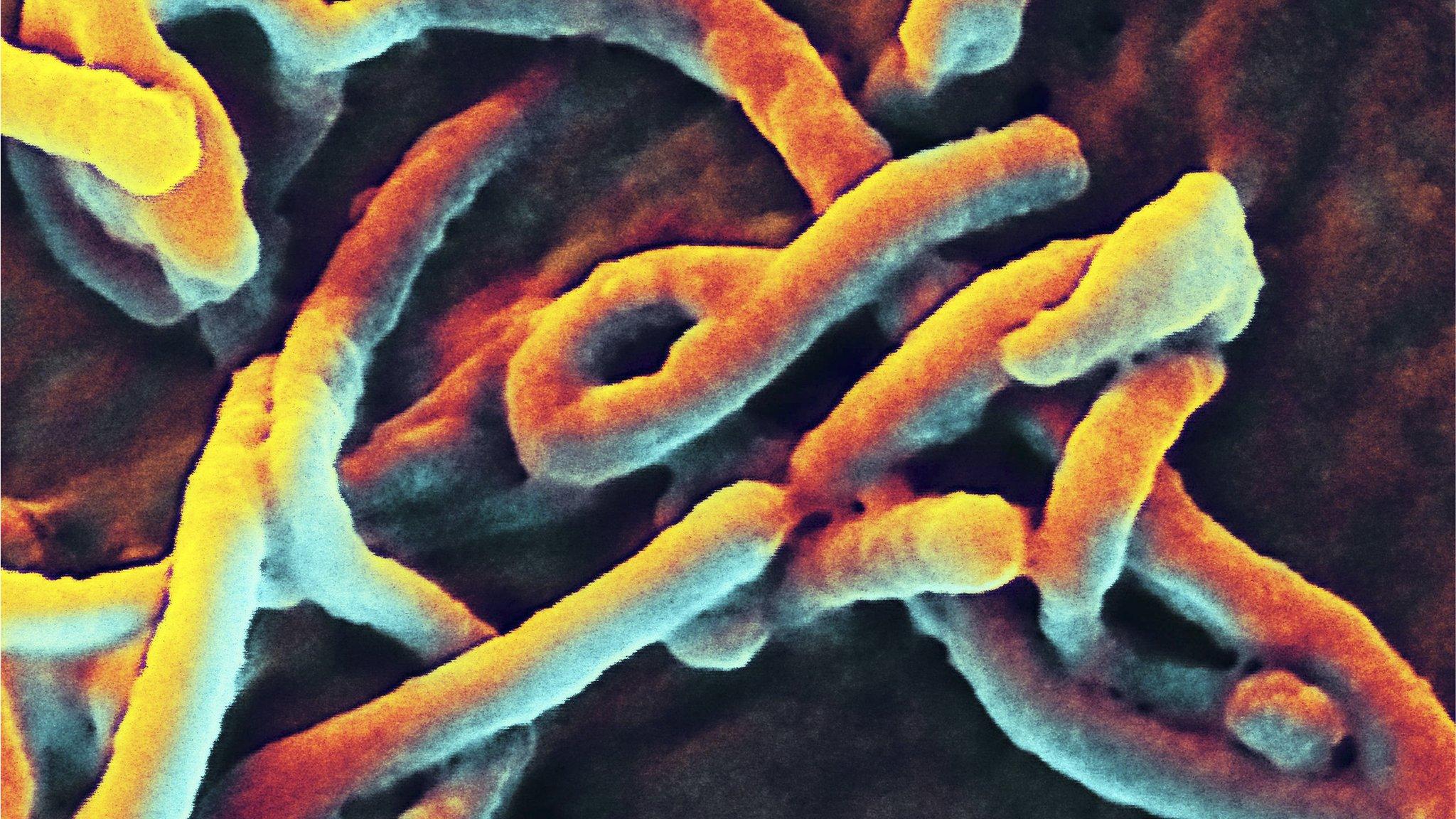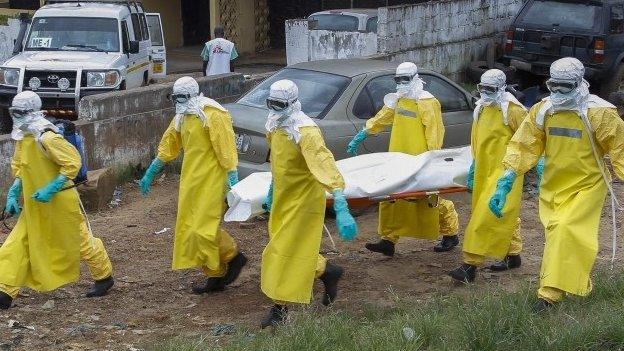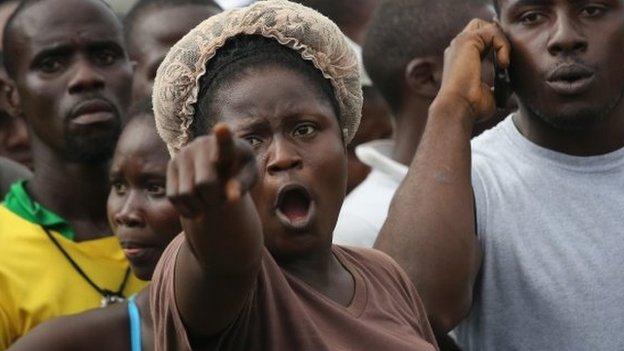Ebola vaccine trial begins
- Published
- comments

The vaccine being tested is similar to one being trialled in the United States
A trial of an experimental vaccine against the Ebola virus is to begin in Oxford.
The first of 60 healthy volunteers will be injected with the vaccine.
It contains only a small portion of genetic material from the virus, so it cannot cause the disease.
Normally it would take years of human trials before a completely new vaccine was approved for use.
But such is the urgency of the Ebola outbreak in west Africa that this experimental vaccine is being fast tracked at an astonishing rate.
If the trials are successful, it could be used to immunise health workers in affected areas by the end of the year.
By then, around 10,000 doses should be available.
The vaccine is being developed by GlaxoSmithKline and the US National Institutes of Health.
Immune response
Funding for the trials is coming from the Wellcome Trust, Medical Research Council, and the UK Department for International Development.
The Oxford study will aim to establish two things: that the vaccine produces a good immune response in volunteers and with few side-effects.
The vaccine uses a modified chimpanzee common cold virus to carry a single Ebola protein - it cannot trigger either disease, but should prompt the production of antibodies against Ebola.
Professor Adrian Hill, director of the Jenner Institute in Oxford, who is leading the trial, said: "This is a remarkable example of how quickly a new vaccine can be progressed into the clinic, using international co-operation".
Blood tests from the volunteers will reveal the extent of their antibody response within two to four weeks.
Further volunteers will be given the vaccine in Africa next month and there are trials in the United States of a different formulation - both vaccines could be used if they prove safe and effective.
Promising results from animal studies were published earlier this month., external
The United States has said it will send 3,000 troops to West Africa to build treatment clinics and to train health workers in how to halt the spread of the deadly virus.
The official death toll now stands at more than 2,400 people, although the outbreak may have killed many times that number.
- Published7 September 2014

- Published16 September 2014

- Published27 August 2014
